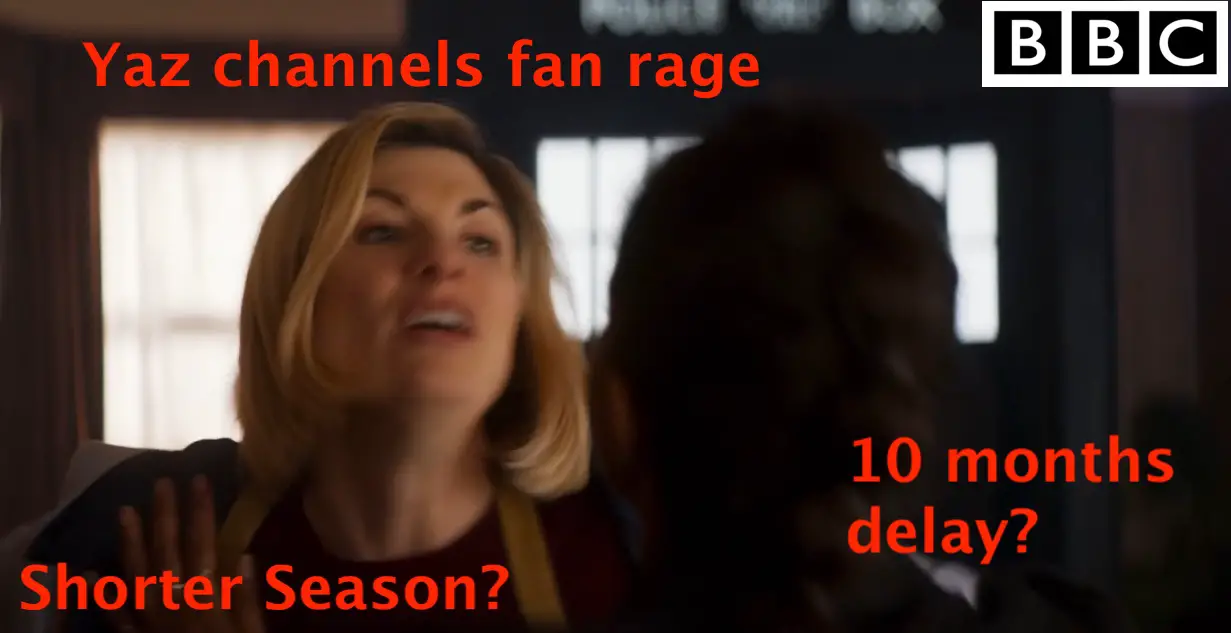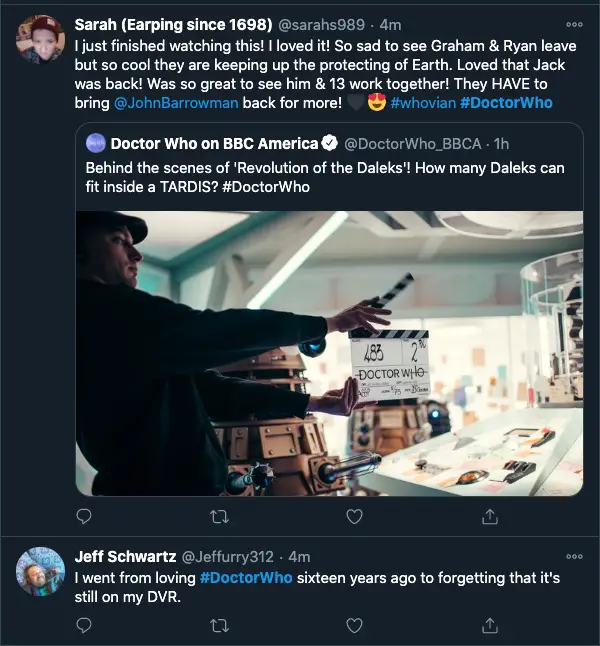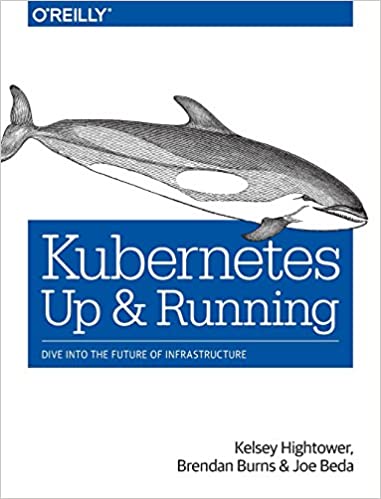; Date: Sat Jan 02 2021
Tags: Doctor Who »»»» Doctor Who Season 13 »»»»
It's been 10 months since the last televised Doctor Who episode, and a True Fan is counting the hours (approximately 7200 hours). To make it worse, we've been told the 2021 season will be shortened to eight episodes, when the recent seasons had already shrank to 10 episodes from 12 or more episodes in previous seasons. And, in Revolution of the Daleks we see The Fam (the Companions in other words) waiting around for 10 months, and then when The Doctor finally arrives -- in the company of what looks like a new Companion -- Yaz got angry and shoved The Doctor. How many of us are feeling the same?

Is it a coincidence that The Doctor didn't return to The Fam for 10 months and that it's been 10 months since the last televized Doctor Who?
As in most TV shows, some of the characters take the role of the audience, asking questions the audience is likely to be asking. In Doctor Who, the Companions play that role, by asking the questions we need answered in order to understand what's going on.
The Yaz character, by being a Companion, plays that role. So when Yaz gets angry at The Doctor, that's partly due to fitting Yaz's character, and partly because the BBC is expecting some of us to be angry at the BBC.
It's understandable for Doctor Who fans to be angry over long gaps between Doctor Who seasons, and the shrinking episode counts per season. But isn't it a minor miracle that the BBC was able to produce any Doctor Who episodes at all in 2020?
The last televised Doctor Who episode was aired in the end of February. At that time the COVID pandemic had just started. Since then all kinds of activities have been curtailed, and tens of thousands of businesses have shuttered. The economic calamity waiting us is potentially enormous. Are we so selfish to be angry that an entertainment program on television was also affected?
Think about it - Doctor Who episodes do not appear magically out of thin air. They're filmed by people working together often in close proximity. And, how can Doctor Who episodes be filmed safely under the conditions required for mitigating the COVID pandemic?
Doctor Who per-season episode counts are shrinking
Back in November when the BBC announced the new schedule -- specifically the plan that the 2021 season would have eight episodes -- I wrote this:
So.. yes.. COVID .. health restrictions .. we get that .. but, BBC, you've been shafting us on new Doctor Who episodes for a lot longer than this year.
In that article I put together a table of the length of Doctor Who seasons since the revival in 2005. In November, the BBC wanted us to believe that the shortening of the 2021 season was a new thing strictly about their COVID response. But the data shows a regular shortening of Doctor Who seasons over the years.
The first few seasons - from 2005 to the 2013 50th anniversary season -- there'd been 13 episodes plus a special. Well, except for 2009 when there was five specials.
Doctor Who fans can feel justified to be angry at a delayed season that's shorter
Yes, there are things the BBC has done with Doctor Who for which anger is justified. Why oh why were the seasons been shortened during the Smith, Capaldi and Whittaker years? And why oh why did the BBC concoct that stupid idea about The Doctor predating the Time Lord race? That was downright stupid.
But, we must also cut the BBC some slack about timing. 2020 was a tough year for all of us, and surely it impacted the BBC's schedule for producing Doctor Who.
Or, maybe there's justification to wallow in some anger. There is no schedule published for when Season 13 episodes will be aired. WTF?
Anyway. a glance through Twitter did not find anyone complaining about the 10 month wait, nor the shortened schedule. Instead the overwhelming response is illustrated by this contrast - some are loving the episode, while others are meh or worse.












